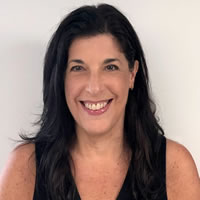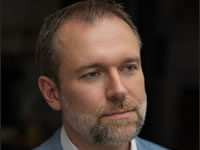Leslie Nydick Podcast Transcript
Leslie Nydick joins host Brian Thomas on The Digital Executive Podcast.
Welcome to Coruzant Technologies, home of the Digital Executive Podcast.
[00:00:12] Brian Thomas: Welcome to The Digital Executive. Today’s guest is Leslie Nydick. Leslie Nydick is a conflict strategist. Workplace conflict? Leslie will get you unstuck. If you are an individual, team, manager, or leader, Leslie will empower you with proven strategies to approach conflict, navigate difficult conversations, and become a master negotiator.
Her services include customized learning, coaching, consulting, and speaking. Leslie has a broad background in negotiation and conflict management. Her experience includes mediating business and workplace issues, arbitrating for the stock exchanges, court appointments as a neutral and coach, and developing and leading training.
Well, good afternoon, Leslie. Welcome to the show!
[00:00:53] Leslie Nydick: Thank you, Brian. I’m really glad to be here and join you for this conversation.
[00:00:58] Brian Thomas: You’re very, very welcome. I love this again, jumping out of bed every morning. I have a podcast because it’s something that really just juices me.
I love to meet new people every single day and having somebody that is not right in my backyard sometimes is really also a way that I can help spread the love by sharing guest stories across the globe. So again, Leslie, we’re going to just jump right in here to the questions. You’ve got quite the career as a mediator, arbitrator, instructor, entrepreneur, and now The Conflict Strategist.
Could you share with our audience the secret to your career growth and what inspires you?
[00:01:33] Leslie Nydick: Oh, definitely. First, let me start with what inspires me about my work. It is sharing what I know and then observing how it improves communication between people and even better is how it provides them with a framework to move forward on their own.
As far as my career growth goes, my secret is to follow your dreams. I know that sounds very cliché. What I mean by it is, when you have something, you’re dreaming about, write it down. Develop a plan. Implement it, one task at a time. And then, I like to add in being flexible. I keep moving. I’m always looking forward and just going for it.
[00:02:20] Brian Thomas: Thank you. I love that. It’s just amazing what really listening to every guest on the show here. It’s amazing to listen to what makes them tick. And we’ve got hundreds of thousands of people essentially listening to this podcast across the globe and everybody grabs a nugget from each one of our guests.
So thank you for sharing that. That’s so important. Leslie, you offer something that seems so basic and should be in our Daily Essential Toolkit, yet we just keep sweeping conflict under the rug. Why is that and how do we overcome conflict avoidance?
[00:02:51] Leslie Nydick: So, to start, conflict happens and running from it is a typical reaction for all of us. Second, avoiding conflict doesn’t get rid of it. It always gets worse. So, why do we avoid it? Because the way we define conflict is typically negative, and then our mind puts us into protect mode. When I ask people to complete this sentence, conflict is, some of the responses will be, conflict is stressful, conflict is too difficult, conflict is scary.
What needs to happen is to transform our mindset from a focus on those negative words. To do something more neutral and eventually as an opportunity. So, for me, the reframing sounds like this. Conflict is difficult. Difficult is disruptive. Disruptive involves different ideas. Different ideas are an opportunity for learning.
So, I can cut out those middle statements and shorten it to conflict is an opportunity. If I adopt that reframe, then when conflict happens, I don’t run and I’ll stay for the conversation, no matter how difficult it gets. Of course, reframing is not a quick process. It took me years to get to that point.
And it’s also unique for each person. The key is reframing how we think about the word conflict. Is the start for managing our mindset about conflict so that we don’t run from it, that we approach it.
[00:04:30] Brian Thomas: Thank you. That’s awesome. I appreciate that. And I never thought as conflict being an opportunity, but at the end of the day, we talk about how our thoughts our perceptions really control our actions. There’s some emotion tied to it or something but reframing it. Absolutely. I can see where, adopting that change so we can move forward into conflict again like everybody, we all tend to, I think it’s our human nature to run away from conflict, but I appreciate you breaking that down for us and our audience today. Leslie, can you highlight some of the benefits and outcomes of having a good conflict strategy?
[00:05:06] Leslie Nydick: Yes. So, I want to use an example of what happens on a team. Most of us are on a team at some point in our work life and workplace when a team has a good conflict strategy. Each of the individuals thinks of conflict as part of their process. It’s just a part of the day. And it literally opens the door to communication in a powerful way.
How? Let me give a few components of that. When team members feel that they can speak up to ask a question, they’ll ask more questions. And that does lead to better conversations. When they know that they can mention an idea, even the ones that seem absolutely crazy, they’re going to share more ideas.
They’re not going to hesitate. When people listen to each other, then different ideas and disagreement are welcomed. Individuals do contribute more. So with that, all that results in a stronger team. And ultimately, it’s a team that delivers more innovation and success for all those reasons. And that is why with an effective conflict strategy and managing your mindset as well as it redevelops the communication skills, and that’s really what has to happen.
And I use that word redevelop because we all have developed communication skills. There is some habits we need to break so that we can redevelop new ones. And so that we continue to communicate versus holding back.
[00:06:45] Brian Thomas: That’s awesome. Thank you for again, sharing things around conflict and a conflict strategy within your organization, obviously having conflict just slows the whole team down.
So again, I appreciate those little gems.
[00:06:58] Leslie Nydick: Oh, I was going to say, what you said prompted me to think that I could offer five tips that I think are five of the most effective tips that any of us can adopt, whether we’re working in a team, we’re working by ourselves, or we’re working with people outside of our company, and there really are five, and it starts with the first one, pause before responding, the second one, listen more, three, ask better questions, four, state your expectations,, And five might be one of the most important, say you don’t know when you don’t know.
And those really work well for me.
[00:07:42] Brian Thomas: Absolutely. And I would add that I think that one of the top ones out of the five would be that listening skill. It takes a lot we’re sometimes like to just jump in and think what the other person is trying to say, and we’re really getting it wrong. So, I think listening is so, so important.
So, thank you for sharing those five tips, Leslie. Leslie, we are a technology podcast platform. I’m a technologist. So, it doesn’t matter if you’re a technologist or not, but we like to ask everybody on this show, if you’re leveraging any new or emerging technologies in your business.
[00:08:14] Leslie Nydick: Yes, absolutely.
And I’m excited about it. So first, I want to go back to 2020 when Zoom provided a huge opportunity for me to not only continue meeting and servicing my clients. It also expanded my reach beyond all borders. I’ve been able to deliver my coaching, consulting, learning programs to anyone who wants it.
And I don’t have to think about, well, you don’t live near me. As I start to offer new services that includes a conflict tune up, virtual courses, and even boot camps. I’m excited about it because truthfully, it is so much easier than it would have been a few years ago or even like a year ago. The various learning programs provide so much more than just delivering a video course.
The technology enables me to develop a community among members for ongoing conversations, support. And so much more. And on the back end, it keeps getting better and easier. Technology is truly allowing me to work smarter, not harder. And that’s why I’m so excited about it.
[00:09:28] Brian Thomas: Thank you for that. I really, really do appreciate everybody’s perspective on technology Zoom’s obviously been a great contributor to the success of the pandemic and post pandemic world from a collaboration and communication standpoint. So, I certainly appreciate that as well as our audience again. And Leslie, it was such a pleasure having you on today, and I look forward to speaking with you real soon.
[00:09:50] Leslie Nydick: Thank you, Brian.
[00:09:51] Brian Thomas: Bye for now.
Leslie Nydick Podcast Transcript. Listen to the audio on the guest’s podcast page.















